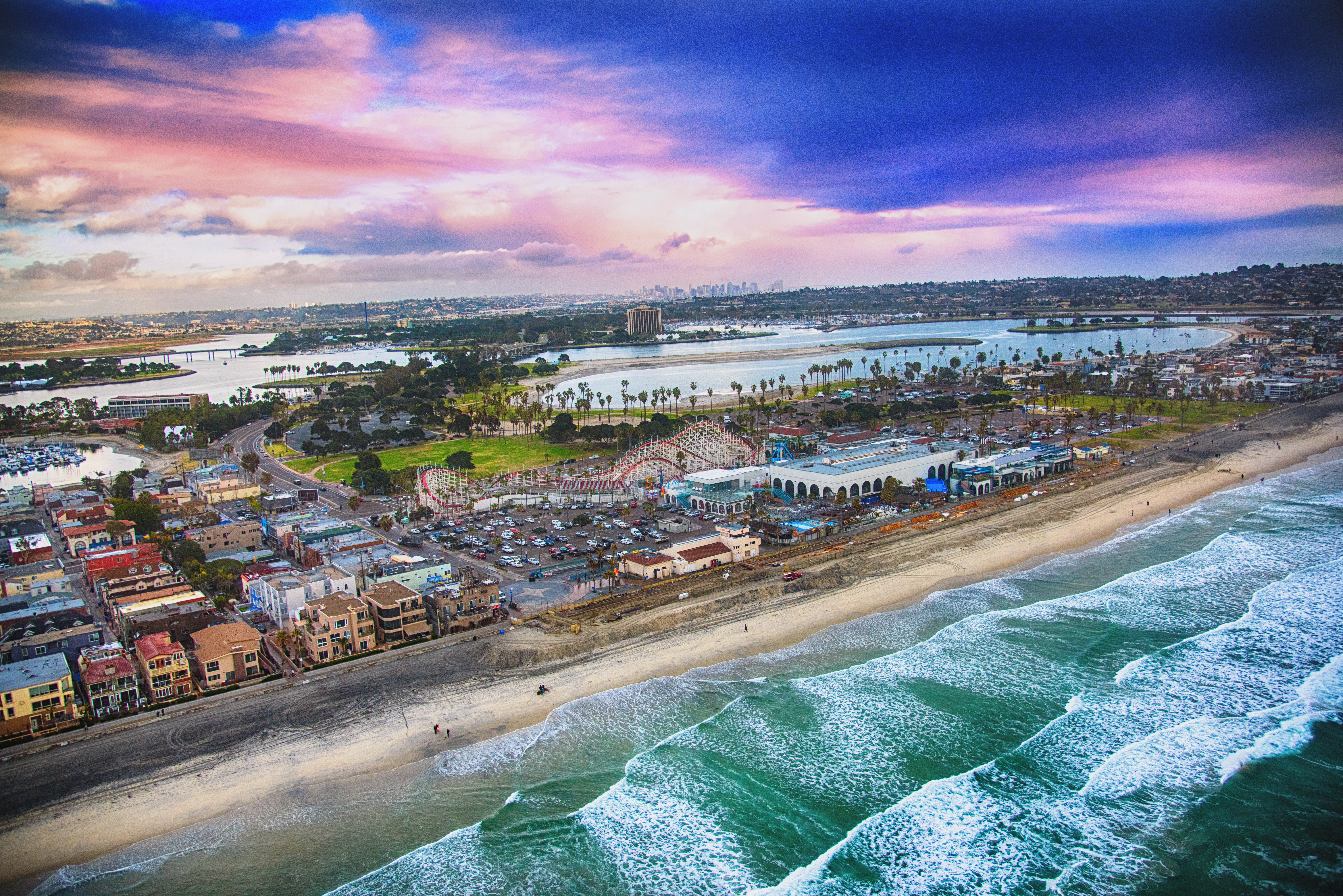Results show that majority-Latino areas of San Diego County shifted toward Donald Trump by wide margins in the 2024 presidential election — in line with trends taking shape nationwide.
Trump’s support from Latino voters across the U.S. hit 45% this cycle, a record high for a Republican presidential candidate, narrowly surpassing President George W. Bush in 2004, according to NBC News exit polls.
That shift was borne out in the election results in some parts of the San Diego area, namely, the South Bay.
In Chula Vista, where 53.5% of registered voters are Latino, Trump earned 41.7% of the vote compared to 33.5% four years prior. In National City, which is 61.9% Latino, his support rose from 31% in 2020 to 39.9% this cycle. And in San Diego City Council District 8, where 69.4% of registered voters are Latino, Trump earned 40.2% of the vote as compared to 27.5% in 2020 – a nearly 13-point swing.
Get top local stories in San Diego delivered to you every morning. >Sign up for NBC San Diego's News Headlines newsletter.
That’s all according to vote totals tabulated by Vince Vasquez, a public policy analyst who has mapped election results in San Diego County for years.
“I think many of the pundits and pollsters didn't expect this,” Vasquez said. “This is, it's a solidly, solidly, dark blue Democratic territory.”
Vasquez said many of the Latino voters who cast their ballots for Trump are younger than other demographics, meaning their political power will only continue to grow – and their support may become less malleable over time.
Local
“This probably isn't a once-in-a-generation phenomenon,” Vasquez said. “This is probably a longer-term political realignment.”
“Once a voter makes a partisan choice, they're more likely to continue to make that choice over time with similar candidates,” he continued. “And so I think this does open the door for more Republicans garnering significant support from Latino voters.”
The results in the South Bay may carry even more significance because California is not a swing state, with zero rallies and far fewer door knocks.
“These are voters who were not being inundated to the degree that they were in other states,” Vasquez said. “This suggests to me that there wasn't a lot of political pressure externally to make these choices. The Republican Party, Donald Trump, wasn't spending significant amounts of money to get local voters to support him.”
“Latinos are conservative. They're just not Republican yet,” said Hector Gastelum, a Latino who lives in Chula Vista and voted for Trump.
He said – while Latinos do not behave as a monolith – for him, it came down to the economy, immigration and his values.
“Most Latinos, we go to church on Sundays. We believe in God. We're anti-abortion,” Gastelum said. “We come to this country, but we still keep our values, which are traditional, which are Catholic, Christian, and that resonated with the Trump message.”
The reasons for his support align with national polling indicating Latino voters’ top issue was the economy and inflation.
“Nobody eats more eggs than Latinos,” Gastelum said, “and when you go to the store and a 12-pack of eggs is $5 or $6, that hurts.”
Vasquez said the national conversation on immigration also becomes more personal for Latino voters who live close to the border – a point Gastelum highlighted as well.
“I have friends that are naturalized who went through the legal process of coming here, submitting the paperwork and everything, and they don't like it when people cut in front of them,” Gastelum said.
On Trump’s appeal – Vasquez warned not to underestimate his years of fame before running for office, particularly when compared to Vice President Kamala Harris’ far shorter presidential campaign.
“He's somebody who is a media personality. He's somebody who has a familiarity outside of politics,” Vasquez said. “And so I think for Latino voters, knowing who the candidate was, there's more of a comfort and, you know, acceptability of this candidate because he's not only within the paradigm of a partisan choice.”
“He tells it like it is,” Gastelum said. “We also remember before he got into politics how beloved he was. He used to have his program on NBC, and everybody loved, everybody wanted to be Trump.”
Gastelum added that Democrats “take for granted minorities that were going to vote for them.”
Vasquez said these election results indicated to him that Latino voters, even in California, are very much in play for either party for years to come.
“The playbooks from the old election cycles, the old campaigns, isn't going to work anymore,” Vasquez said. “You're going to need to engage all types of voters and not make any assumptions about how they'll cast ballots.”
“I think this is probably a watershed moment in American history and also San Diego as well,” he added.



